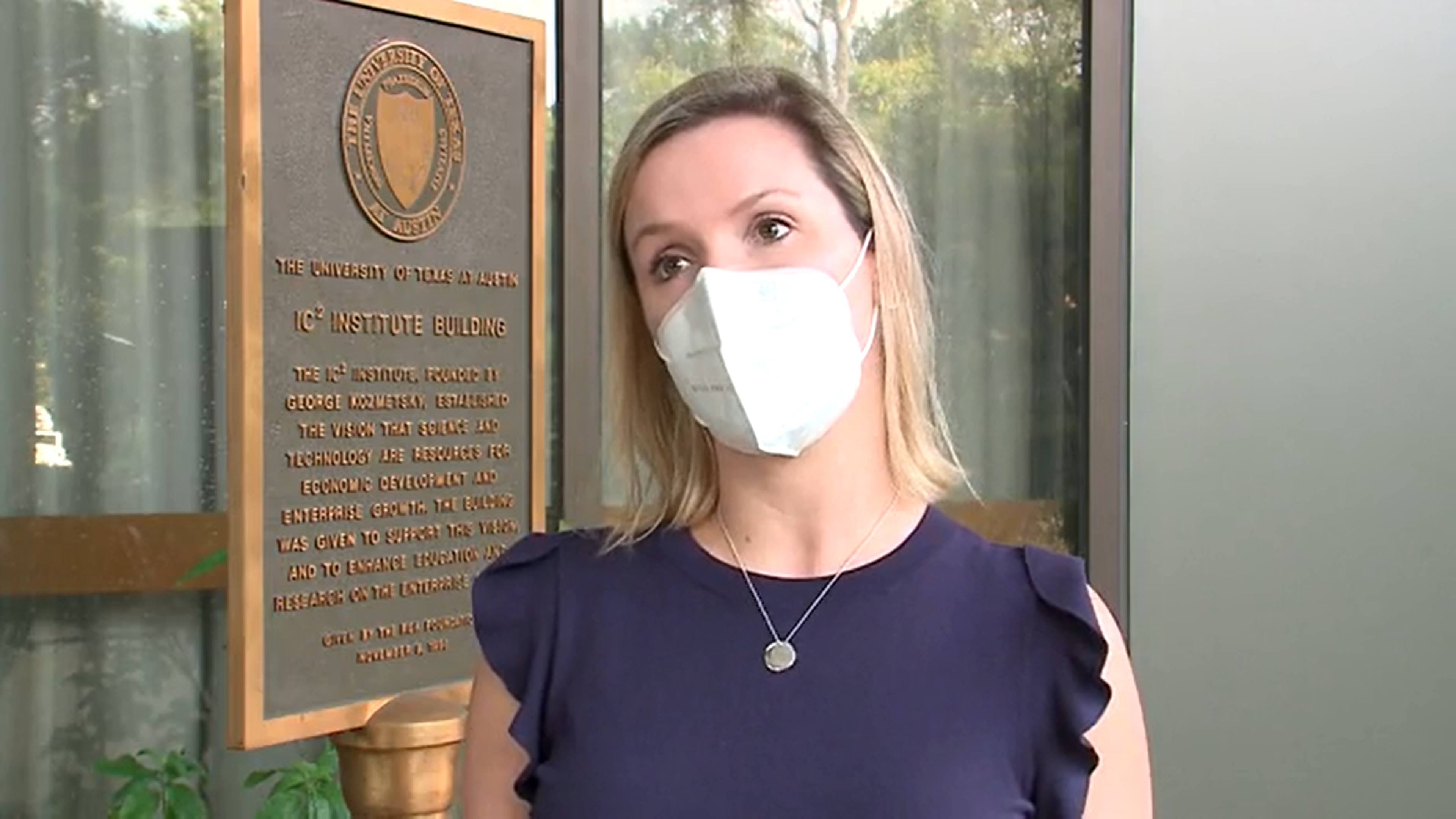by: Todd Bailey
Posted: Aug 12, 2020 / 12:08 PM CDT
Updated: Aug 12, 2020 / 12:08 PM CDT
AUSTIN (KXAN) — Nestled in West Campus is the nucleus of what may come next in the battle against COVID-19 in Austin and abroad.
“This building is the IC² Institute. There’s a rich history of economic development and supporting entrepreneurship going back to George Kozmetsky, and so we’re really drawing upon that exact same sort of spirit — starting here in Austin, where you have all of the ingredients… and we’re bringing that across the state connecting people,” Director of Health Care Dr. Lisa McDonald said.
It’s a Texas roundup of companies supporting innovators combating COVID-19 with pandemic preparedness and responses.
Austin Technology Incubator organized the consortium over the course of a few months, aptly titled: “Texas Global Health Security Innovation Consortium,” and launched it at The University of Texas at Austin this past July.

“We sent out a survey to identify what people were working on, if they were pivoting their technologies toward COVID-19, or [if they already were],” Dr. McDonald said.
The collaborative group consists of more than 50 organizations in academia, and in both the public and private sectors. It’s a concentrated, coordinated effort to mitigate the effects of COVID-19 and any future pandemics.
We can prevent something like this happening at this scale ever again… The [COVID-19] pandemic turned the world upside down, and even people that had been in the space of understanding what infectious disease was and understanding the potential harm from infectious disease, were caught off guard. So we were all caught off guard and what it means to me, if we’re putting something like this in place, we can answer that uncertainty for people and give people a feeling of safety going forward, safety for their lives, safety for their jobs, and safety for Texas.
DR. MCDONALD
The big-picture goal in mind is to improve health security globally with a long-term innovation ecosystem — one that already existed in Texas, McDonald said, but they’re giving it structure.
An immense project like this takes time, but due to the urgency of the current COVID-19 pandemic, they’ve already started supporting a variety of pilot projects:
- Community contact tracing
- Large-scale decontamination
- Mass vaccination systems
- PPE education through gamification
“We’re supporting projects that facilitate a safe return to school that give administrators the information that they need to make decisions about reopening schedules,” Dr. McDonald said, as an example.
They are also in the process of defining focus areas for future pilot projects to align with statewide goals.

Shahram Shafie, an Austin technology entrepreneur, looks at if a certain innovator’s technology is a good match or not for the overall goal.
“Are they relevant? And, how can they work with somebody else?”
The combination of resources is the driving force behind creating solutions.
“[We] try to understand, ‘what are all the capabilities,’ and link them all together, then we are able to come up with a solution that’s feasible in the medium term and long term… We create a two-way street. Some of our solutions based on the team members, our capabilities, and then we can also react if the state government, the federal government, [if] they need the help for the particular cases,” Shafie said.
“50% of our problems are already solved. We don’t need to pitch the convincing argument: this is essential, if you join, we can achieve this and that — everybody is ready for it. We just need to find the right places like a jigsaw puzzle. We try to find the right place for the people and the elements,” Shafie said.
The consortium is actively searching for more corporate donors and recruiting more partners. If you’re part of an organization or startup interested in joining, you can do so on their website. They’re open to those seeking to commercialize solutions for health security and technology.





